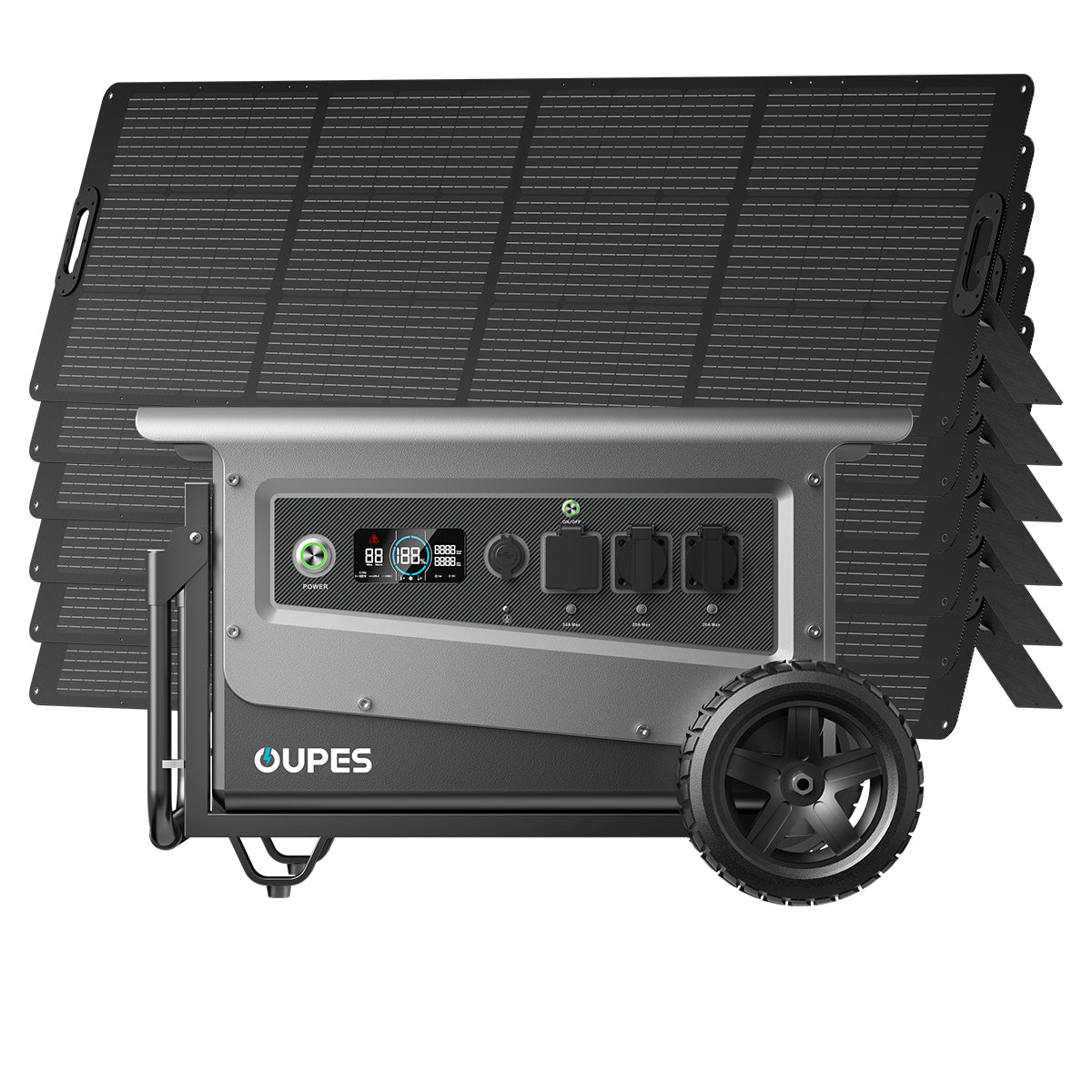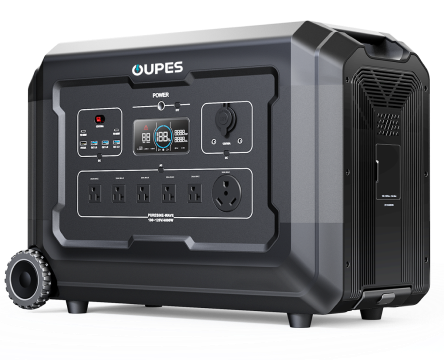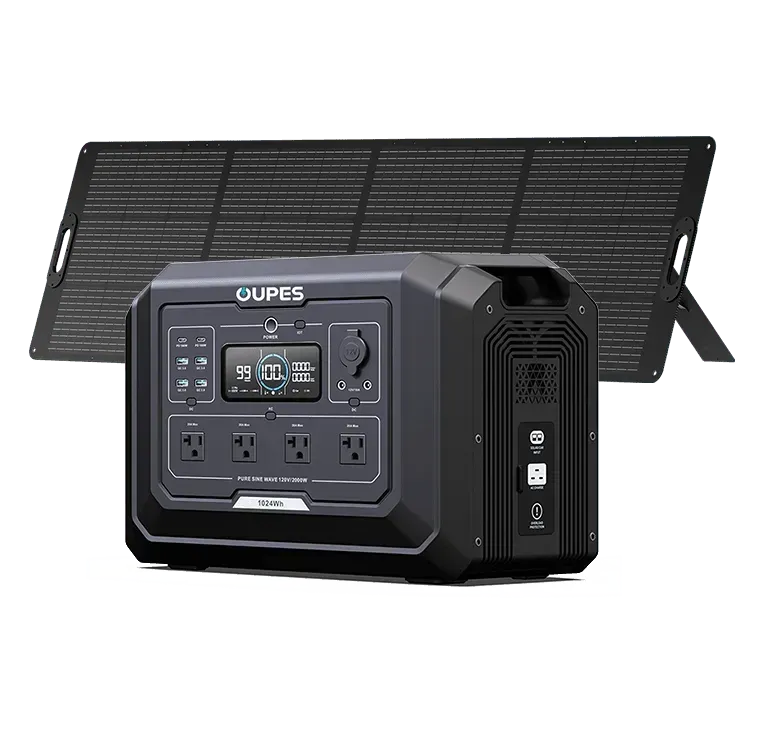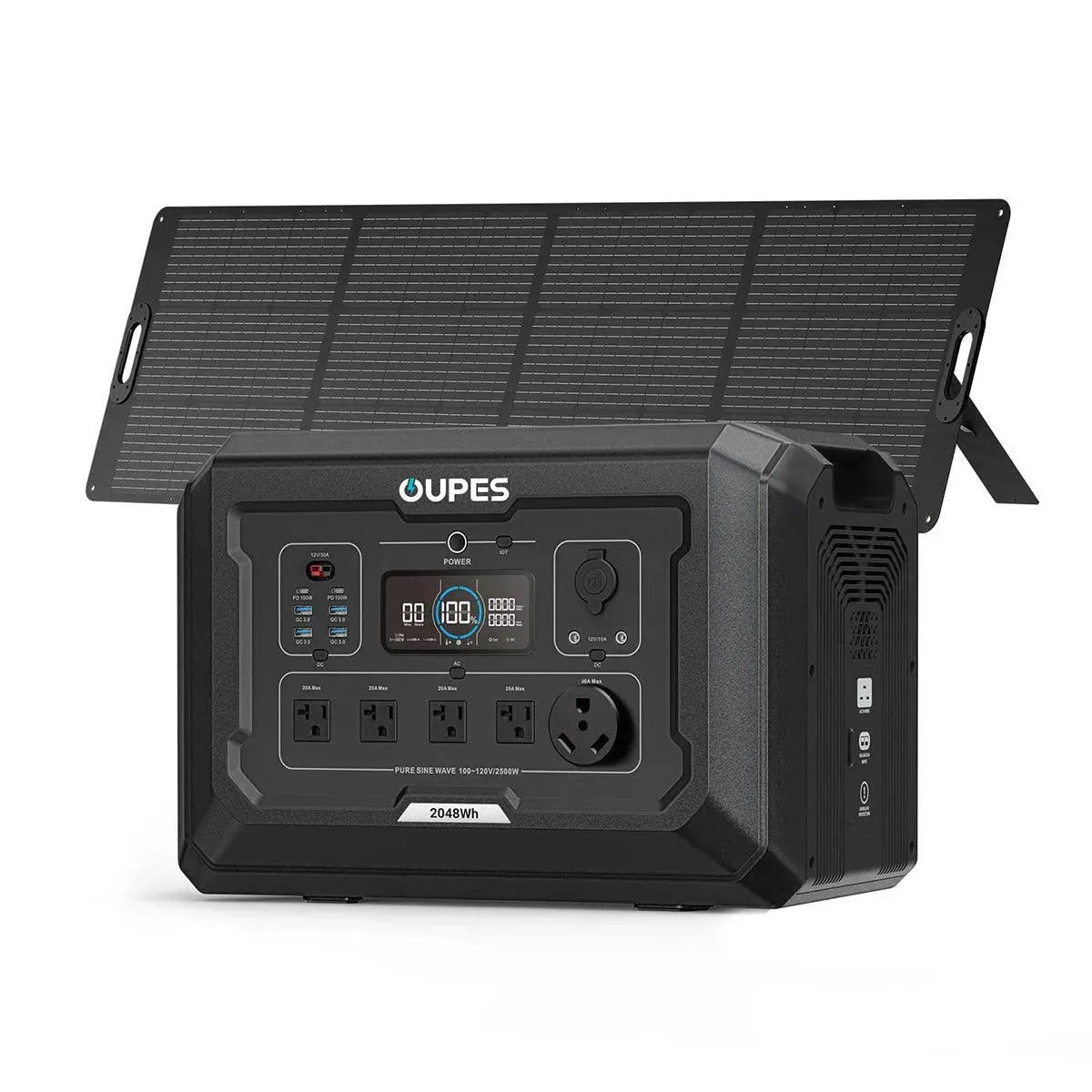
When it comes to off-grid living or emergency preparedness, portable solar generators have become increasingly popular due to their ability to provide reliable power without relying on traditional energy sources. One of the most common questions that arise when considering the purchase of a solar-powered generator is: how long will a 1000W portable solar generator run a refrigerator? Understanding the factors that affect this duration is crucial for anyone planning to rely on solar generators for daily tasks. In this article, we’ll explore the key aspects that determine how long a 1000W solar generator can power a refrigerator, and what you need to consider when using solar energy for such appliances.
Understanding Solar Power and Refrigerator Consumption
To answer the question of how long a 1000W portable solar generator can run a refrigerator, it’s essential to first understand the dynamics of solar power and the energy consumption of refrigerators. A refrigerator typically runs on an alternating current (AC) system, which means that the inverter of a solar generator plays a significant role in converting the power. The power output required to run a refrigerator will depend on the size of the fridge, its energy efficiency, and how often it runs throughout the day.
Refrigerators work by using a compressor to cycle on and off. The compressor uses a significant amount of power when it runs, but since the refrigerator isn’t running constantly, it consumes power intermittently. This means that the total wattage needed to run the fridge isn’t a constant load. Instead, it fluctuates based on how often the compressor kicks in. For example, a small energy-efficient refrigerator might only consume around 100-200 watts when the compressor runs, but larger models can consume anywhere from 400 watts or more during their cycling periods.
The solar generator’s capacity, measured in watt-hours (Wh), determines how much power it can supply over a given period. For example, a 1000W solar generator is capable of providing up to 1000 watts of power, but the duration for which it can supply that power depends on the generator’s battery capacity. In the case of a refrigerator, knowing its energy consumption will allow you to estimate how long it can be powered by the solar generator.
Factors That Influence Solar Generator Efficiency
The efficiency of a solar generator depends on several factors, including the capacity of the battery, the quality of the solar panels, the inverter’s efficiency, and the environmental conditions in which the solar system operates. These factors will all play a role in determining how long a 1000W solar generator can power a refrigerator effectively.
One of the main factors influencing the duration of power supply is the solar generator’s battery capacity. A solar generator with a larger battery will store more energy, allowing it to run appliances like refrigerators for a longer period. The battery size is typically measured in watt-hours (Wh), which indicates how much energy the battery can hold. A generator with a higher Wh rating can power a refrigerator for a more extended period before needing to recharge.
The quality of the solar panels is another important consideration. The better the panels, the more efficient they are at converting sunlight into electricity. This means that a solar generator with high-quality panels will be able to recharge its battery faster, ensuring that there’s a continuous power supply. On the other hand, lower-quality panels may take longer to charge the system, reducing the overall efficiency of the solar generator.
In addition, the inverter’s efficiency impacts how effectively the generator converts DC (direct current) power from the solar panels and battery into AC (alternating current) power for your refrigerator. A more efficient inverter means that more of the power stored in the battery is available for use, which can extend the runtime of your refrigerator. Inverters typically operate at efficiencies between 80% and 95%, so the higher the inverter’s efficiency, the better.
Calculating How Long a 1000W Solar Generator Can Run a Refrigerator
Now that we understand the factors affecting solar generator efficiency, let’s look at how to calculate how long a 1000W portable solar generator can run a refrigerator. To do this, you’ll need to know the refrigerator’s power consumption (usually measured in watts), the capacity of the solar generator’s battery, and how often the refrigerator cycles on and off throughout the day.
For example, if you have a refrigerator that consumes 150 watts per hour and the solar generator has a 1000W battery, you can begin to make some estimations. Let’s say the refrigerator runs for 8 hours a day. If the total wattage used by the refrigerator during this period is 1200 watt-hours (150 watts x 8 hours), a 1000W solar generator with a battery capacity of 1000Wh would be able to power the refrigerator for roughly 8 hours before needing to recharge. However, this is just a rough estimate. The actual time can vary depending on the refrigerator’s energy efficiency and the frequency with which the compressor kicks in.
It’s important to note that not all refrigerators are the same, and their energy consumption varies widely. A compact, energy-efficient fridge will consume far less power than a larger, older model. As such, it’s essential to understand your fridge’s specific power requirements to make a more accurate calculation. Additionally, if you are using the solar generator for other appliances at the same time, this will reduce the available power for your refrigerator, shortening its run time.
Maximizing the Runtime of Your 1000W Solar Generator
To get the most out of your 1000W solar generator when powering a refrigerator, there are several strategies you can employ to maximize its runtime and efficiency. These tips can help ensure that your solar generator provides reliable power for longer durations, even in challenging conditions.
One of the most effective ways to extend the runtime of your solar generator is by optimizing its charging process. Solar generators rely on sunlight to recharge, and the intensity of sunlight can vary depending on the time of day, weather conditions, and geographical location. To maximize the efficiency of your system, it’s essential to position your solar panels where they will receive the most sunlight throughout the day. This means avoiding shading from trees, buildings, or other obstructions. If you live in an area with frequent cloud cover or limited sunlight, you may want to consider purchasing additional solar panels to help boost your system’s charging capacity.
Another way to maximize the runtime is by using energy-efficient appliances. If your refrigerator is old and inefficient, upgrading to a more modern, energy-efficient model can significantly reduce its power consumption. Look for refrigerators with the Energy Star label, as these models are designed to use less electricity while still providing optimal cooling performance.
Additionally, minimizing the refrigerator’s cycling time can help extend the runtime of your solar generator. To do this, keep the refrigerator door closed as much as possible to prevent warm air from entering, which can cause the compressor to run more frequently. Proper insulation and maintenance of the refrigerator, such as ensuring the seals are intact and cleaning the condenser coils, can also help reduce the load on the solar generator.
Is a 1000W Solar Generator Sufficient for Running a Refrigerator Long-Term?
While a 1000W solar generator can be a reliable option for powering a refrigerator for short periods, it may not be sufficient for long-term, continuous use, especially for larger or older models. If you plan to rely on a solar generator for daily use of your refrigerator over an extended period, you may need a larger system or a backup battery to ensure that your generator doesn’t run out of power during the day or night.
If your goal is to power the refrigerator alongside other appliances, you’ll need to consider the total energy demand of your system. A larger generator with a greater battery capacity may be necessary to handle the increased load. You can also supplement your 1000W solar generator with additional solar panels to increase the amount of power generated during the day, allowing you to store more energy for nighttime use.
For those who live off-grid or in areas where power outages are common, it’s essential to have a more robust system that can handle the load of multiple appliances. While a 1000W solar generator is an excellent starting point for small households or occasional use, larger systems with greater capacity may be necessary for long-term energy independence.
In conclusion, a 1000W portable solar generator can run a refrigerator for a reasonable amount of time, depending on the refrigerator’s power consumption, the solar generator’s battery capacity, and the efficiency of the system. While it may not be sufficient for long-term, continuous use, especially for larger fridges, it can be a reliable option for short-term or emergency situations. By understanding your refrigerator’s energy needs, optimizing your solar generator’s performance, and considering your long-term energy requirements, you can make the most of your solar-powered system.




























